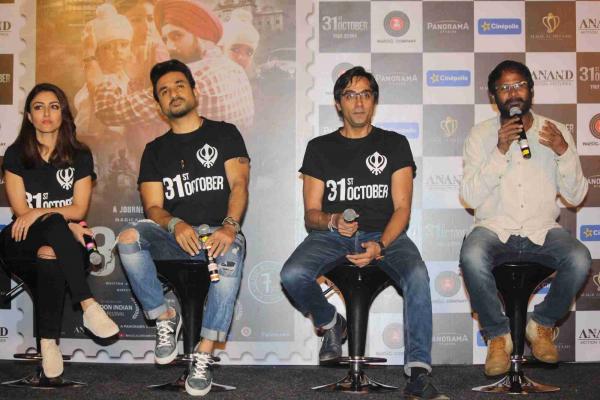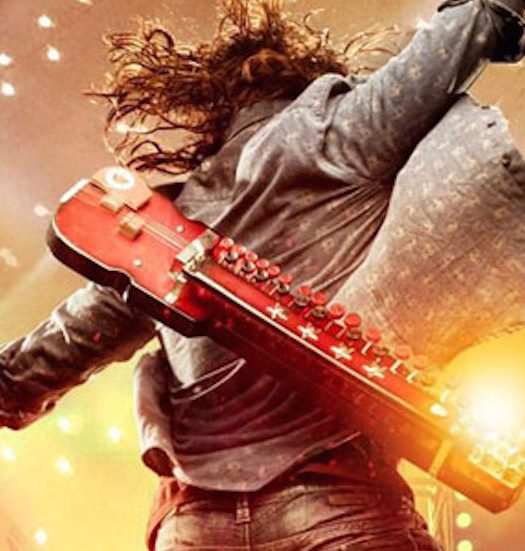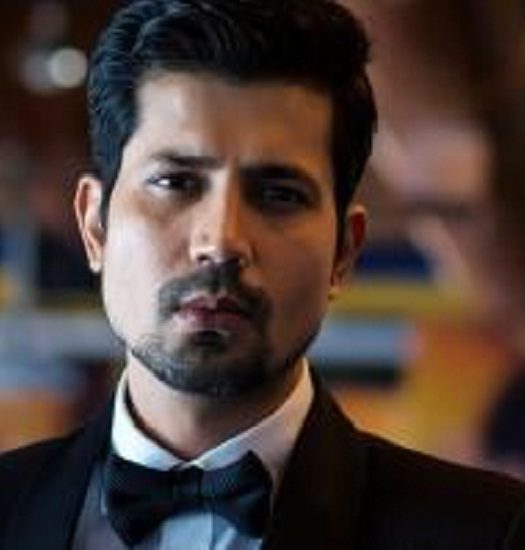Revisiting 31st October 1984 with Harry, Shivaji and Soha
31st October 1984 was a dark day in the history of India. Harry Sachdeva’s movie 31st October tells a story of the hardships that a Sikh family endures on that fateful day. Directed by National Award winner Shivaji Lotan Patil, the film features Vir Das and Soha Ali Khan.
We caught up with writer and producer Harry Sachdeva, director Shivaji Lotan Patil and actor Soha Ali Khan to know more about the film, from the inspiration to the research to the hardships faced during the process of filmmaking.
Harry Sachdeva

(L-R) Soha Ali Khan, Vir Das, Harry Sachdeva and Shivaji Lotan Patil
What drove you to make a film on this subject? What did your research include?
31st October, 1984 was one of the darkest days in our history. Almost every house in Delhi will have a story regarding that day as a lot of them lost a loved one or someone they know. Even I have vague memories from when I was four years old and because of the circumstances, we had to dress like young girls with braids. Those are the kind of memories that haunt you forever. Since this story is something that is close to me and cinema is my passion, I wanted to tell it through a film.
I researched for months about that day; spoke to a lot people and families that were affected. During my research I came across a colony called the ‘widow colony’ in Delhi, which has widows of almost 450 families. I met them and heard their stories. I also met journalists who were active during that time. It was during this research that I came across the story of a family that was truly inspiring. They had penned down their story in a dairy. I requested them to allow me to make a film on their life. The story traces the hardship that this family underwent and how the non-Sikhs came forward to help them. The film has its own highs and lows where the suspense is whether the family was ultimately rescued or not.
Tell us about the thought process behind the casting for this film.
Since this is a Bollywood film, I wanted somebody who could do justice to the subject. I am a big fan of Rakeysh Omprakash Mehra and I loved Soha Ali Khan’s performance in Rang De Basanti. There are some films that you keep seeing again and again, and some characters that you love; for me one such character was Soha’s. Also, Soha resembles the real life character a lot.
As for Vir Das, people have only seen him as a comedian and he wanted to experiment with acting. He performed extremely well in the screen test. He is someone who can think out-of-the-box and we wanted to experiment with this quality of his. But regardless of who we cast, the story is the hero here. I only wanted my characters to look as real as possible on the screen.
Why did you approach Shivaji Lotan Patil to helm the film?
I was attending the National Award ceremony where Shivaji (Lotan Patil) received a National award for his film Dhag. I spoke to him about the story that I was writing. He wasn’t well aware about the happenings of 31st October and I wanted someone like that. I did not want some who was emotionally close to the subject because that would come between their vision and I did not want the story to get lost. I wanted someone who was sensible and that is why I went for Shivaji. His film Dhag was brilliant.
What were the challenges that you faced while making a film that dealt with such a sensitive issue?
The film has faced problems from the very start. When we started shooting, the first challenge we came across was to show how Delhi was in 1984, as the city has changed immensely over the decades. But then we found a village in Ludhiana and through production designing we made it look like Delhi in 1984. The day we started shooting, there were some elections and around 30 people came on their trackers to destroy the sets. Fortunately, the villagers were kind enough to give us protection.
Censor was another problem as they wanted to ban the film. But then we pushed the movie and somehow convinced them to release it. They wanted some 45 odd cuts, but at last we convinced them to come down to nine cuts. Luckily, the story did not get affected by these cuts and it’s exactly the way we wanted it.
Soha Ali Khan

Soha Ali Khan
What was the kind of research that you had to do in order to understand your character?
Most of the research was done by our writer and producer Harry. I did have some knowledge regarding the subject. I also met people who had been affected by the 1984 incident and they had their own stories to share. Beyond that there is only so much research that you can do because it is a very emotional role. More than preparation, it is about being in the moment between action and cut and imagining yourself in that kind of a stressful situation.
Does playing such an intense character take a toll on you?
It is a different role and there is something that you take away from each character that you play. This one was particularly emotionally draining because the movie recounts the happenings of a dreadful day. You are shooting the incidents of one single day where you re-live the story again and again. We were shooting for nearly two months in the same costume and similar locations that does get a bit tiring. But at the end, it was a valuable film to be a part of because you feel a sense of pride in doing such a meaningful film.
How difficult was it to relate to your character?
I am nothing like the character I play; I’ve never had to make a choice like that or been in a situation where my life or the life of my loved ones is threatened. Listening to stories from people who have been in that situation does help, but it is difficult to play a character when you’ve had a protected background.
Shivaji Lotan Patil

Shivaji Lotan Patil
What did your preparation for the film entail? Was it difficult to gather the facts and information?
There is so much information available on the Internet regarding the 1984 incident that I did not really face too many difficulties. Plus, Harry wrote the movie in a very good manner so it was easy to make. Through the writing I understood that this is a story about a family, it is their journey where my job is to take them from point A to point B. But yes, I did do some research about the incidents that took place during that journey.
There are a lot of photographs and interviews of the families that went through this incident. There are various BBC documentaries based on 1984, so there was a lot of material that I could refer to. And doing the right kind of research was also important as we had to make it look authentic, from the moment Indira Gandhi was shot to what happened through the day and the night; we had to cover all the major incidents.
How has the transition from Marathi movies to Hindi movies been, how was your experience?
The experience was very good, it is a little easier to work in Hindi cinema because you get that kind of a budget to work with. In Marathi cinema, you have a limited budget and that is the only major difference between the two industries.



